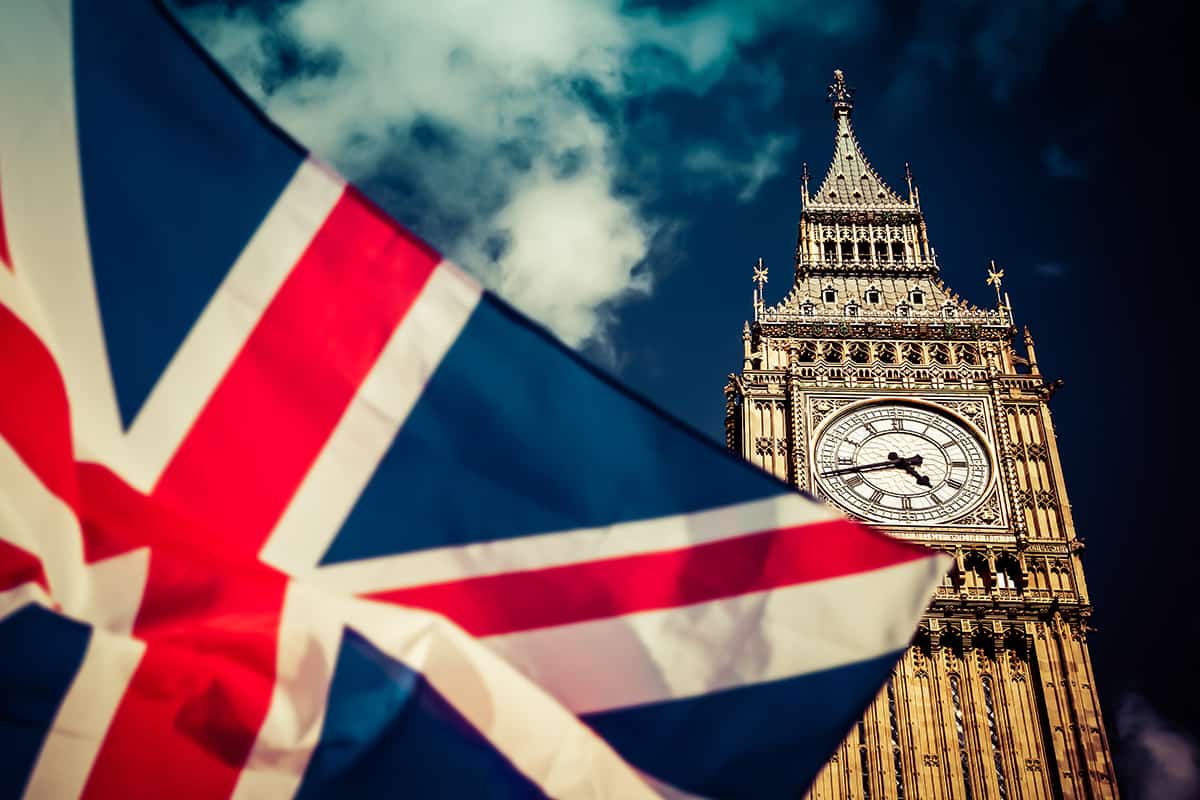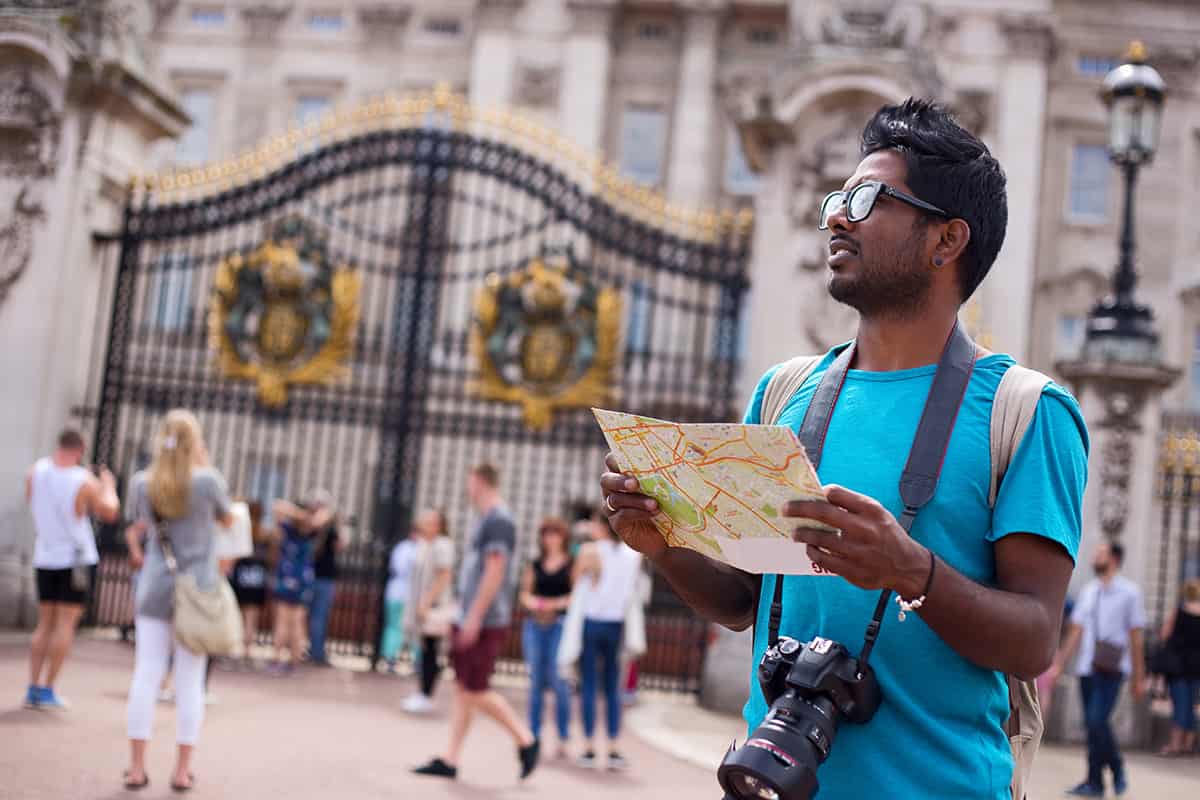Skilled Worker Visa

Business Immigration
RYCM Team
The Skilled Worker visa is the replacement visa category for Tier 2 (General) visa.
A Skilled Worker is expected to have relevant expertise, training and education in a particular field or profession. The Skilled Worker visa allows individuals to come and live in the UK to work for an approved sponsor in a skilled role.
What are the requirements?
To be eligible for a Skilled Worker Visa, you should meet these criteria:
- Have a job offer with a UK employer authorised by the Home Office to sponsor overseas workers.
- Obtain a 'certificate of sponsorship' from the employer, specifying your role in the UK.
- Perform a job that is categorised as an eligible occupation.
- Be paid a minimum salary, with the specific amount varying based on your job type and skill.
- You must be 18 years of age or older.
- You need a valid passport or other document that verifies your identity and nationality.
- Proof of English language knowledge.
- Have enough personal savings to show you are able to maintain yourself in the UK.


What can I do with a skilled worker visa?
It is important to comply with the terms of your visa and job category while resident on a Skilled Worker visa.
Additionally, there may be specific restrictions, such as the number of supplementary paid work hours you can undertake, so it is essential to stay informed and compliant with these requirements.
With a skilled worker visa in the UK, you are allowed to:
- Work in an eligible job.
- Study.
- Bring your partner and children with you as your 'dependants' if they meet the eligibility criteria.
- Take on additional work in certain circumstances.
- Engage in voluntary work.
- Apply to settle permanently in the UK, also known as 'indefinite leave to remain,' if you have lived in the UK for 5 years and meet other eligibility requirements.
What are you NOT allowed to do?
- Apply for benefits (public funds), or the State Pension.
- Change jobs or employer unless you apply to update your visa.
Why choose us?
Our highly trained immigration experts have a thorough understanding of the Skilled Worker visa requirements and application process.
We can help you with your application with tailored advice. We will provide you with:
- An honest opinion on the positives and negatives of your case.
- Advice on the skilled worker visa requirements specific to your circumstances.
- A customised evidence checklist.
- Assistance with preparing and submitting your application form and evidence.

Travel Documents and British Passports
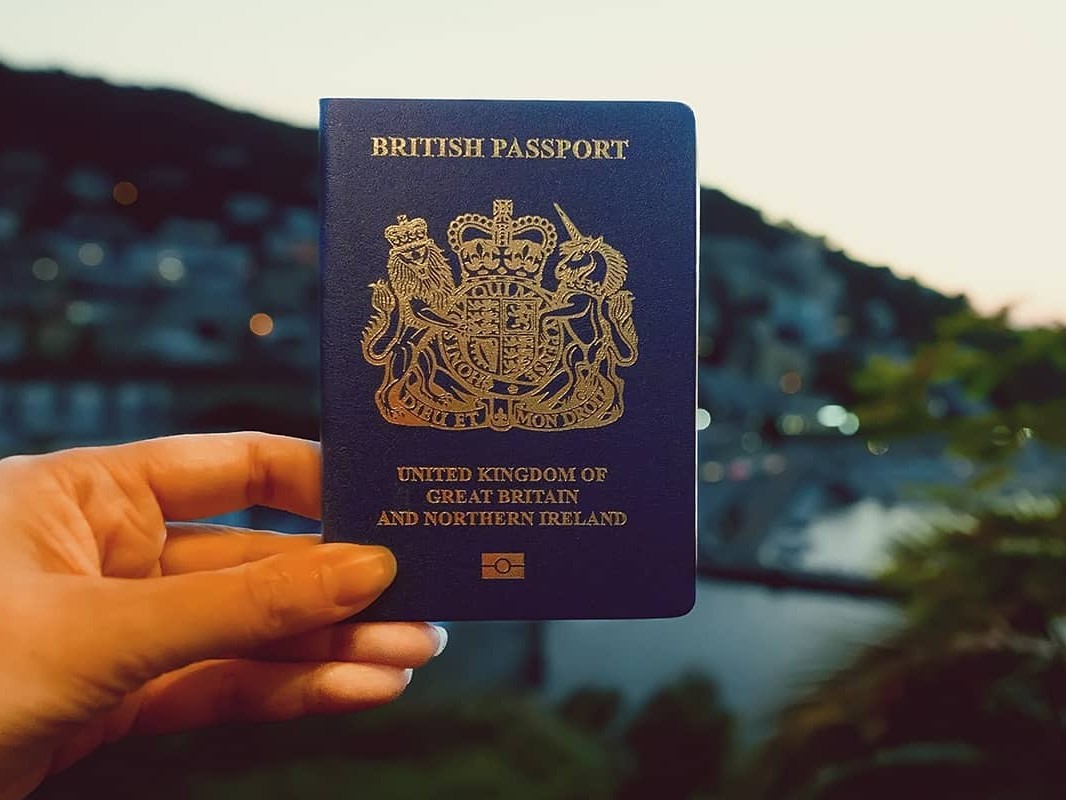
Personal Immigration
Travel Documents and British Passports
Travel Document
You can apply for a travel document to travel outside the UK if:
- You are not British.
- You cannot use or get a passport from your country of nationality.
- Your country of nationality cannot give you a passport.
1. Refugee Travel Document
If you have Refugee Status, you can apply for a Refugee Travel Document from the Home Office.
This type of travel document serves as a substitute for a passport from your country of nationality.
Who is eligible?
- Refugees residing in the UK.
- You originally came to the UK on a family reunion visa to join someone who has refugee status.

What can I do if I am issued with a Refugee Travel Document?
- Travel documents are primarily used for international travel. They serve as an alternative to a national passport and are essential for crossing international borders if the country recognises it.
What am I NOT allowed to do if I am issued with a Travel Document?
- Return to your Home Country: If you are issued with a Refugee Travel Document, you cannot return to your home country.
- Exception Country: Travel to any country excluded on your travel document.

2. Certificate of Travel
A Certificate of Travel is an international travel document issued by the Home Office.
It is designed for individuals who are not British citizens but need to travel outside the UK and are unable to obtain a passport from their country of nationality.
Who is eligible?
- Asylum seekers who have been granted Humanitarian Protection.
- You originally came to the UK on a family reunion visa to join someone who has Humanitarian Protection.
- You were born in the UK as the child of someone with refugee status and you have permission to stay but do not have refugee status yourself.
- You have an important reason to travel, and your country’s national authorities are unable to issue you with a passport or emergency travel document quickly.
What can you do if you are issued with a Certificate of Travel?
- Certificate of Travel are primarily used for international travel. They serve as an alternative to a national passport and are essential for crossing international borders.
What are you NOT allowed to do if you are issued with a Certificate of Travel?
- Travel to Certain Countries: Some countries may not recognise or accept a Certificate of Travel as a valid travel document.
3. British Passport
A British passport is an official document issued by the UK government, which serves as a form of identification and allows you to travel internationally.
Who is eligible?
- British Citizens
What are the requirements?
To apply for a first British passport, you need to meet certain requirements and provide necessary documents:
- Proof of Identity: You need to provide proof of your identity. This typically includes your birth certificate or adoption certificate.
- Confirmation of British Nationality: If you were not born in the UK, you will need to provide documentation to confirm your British nationality. This may include a Certificate of Nationality, Certificate of Registration as a British citizen, or a Certificate of Naturalisation.
- Photographs: You will need to provide two identical passport-sized photos that meet the UK's photo requirements.
- Referee: You will need 1 referee, to confirm your identity.
- Supporting Documents: Depending on your individual circumstances, you may be required to provide additional documents. For instance, if you have changed your name, you should provide evidence of the name change, such as a deed poll certificate or marriage certificate.
Why choose us?
Our highly trained immigration experts have a thorough understanding of the Travel Document and British passport requirements and application process.
We can help you with your application by providing you with:
- An honest opinion on the positives and negatives of your case.
- Advice on the requirements specific to your circumstances.
- A customised evidence checklist.
- Assistance with preparing and submitting your application form and evidence.
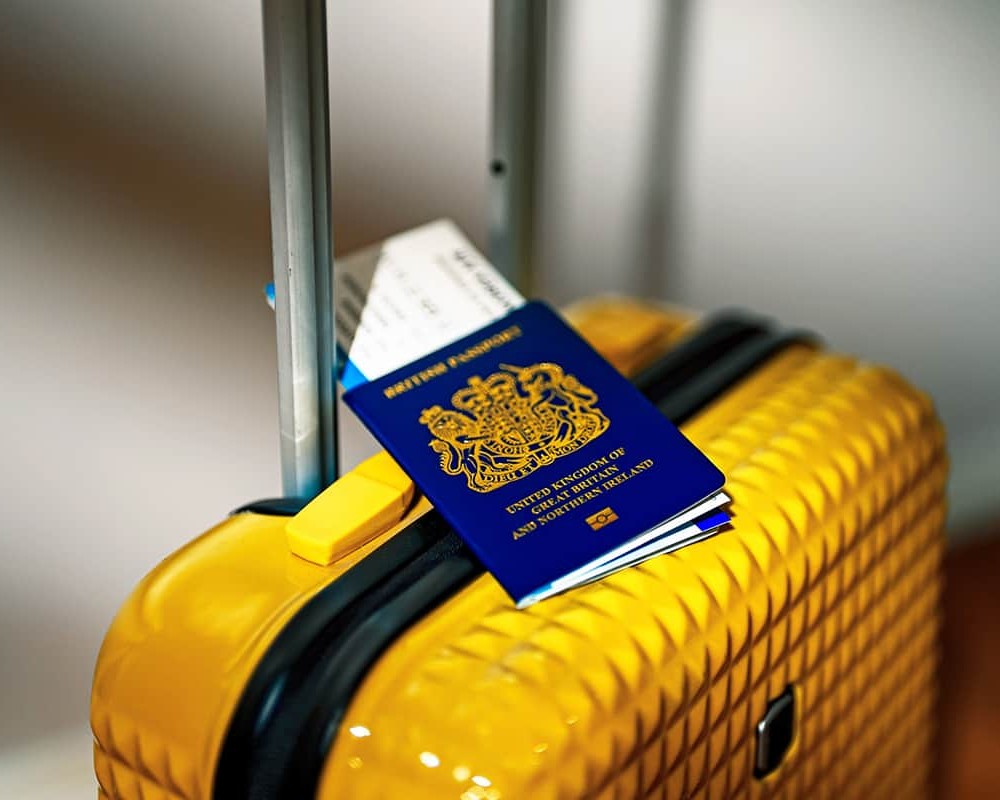
Indefinite Leave to Remain

Personal Immigration
Indefinite Leave to Remain
Indefinite Leave to Remain (ILR), also known as ‘settlement’ allows non-British citizens to live, work and study in the UK for as long as you like (there is no time limit on your leave once you have obtained Indefinite Leave to Remain).
ILR does not automatically grant British citizenship. It is a requirement for those who want to become British citizens.
There are various types of Indefinite Leave to Remain (ILR) in the United Kingdom, each designed for specific immigration categories and circumstances.
Some individuals can apply for ILR in various immigration categories, depending on their unique circumstances:
- If you work in the UK: If you are resident in the UK on a work visa you and your dependents may be able to apply for ILR. The specific requirements may vary based on the type of work visa.
- If you have family in the UK: If you have a partner, parent or child or other relative settled in the UK, depending on the circumstances, you may be able to apply for ILR.
- If you are a long-term resident of the UK: If you have lived in the UK continuously for an extended period, usually ten years, you may be able to apply for ILR. It is not tied to a specific visa category and can be made up of different visa categories.
- If you are a Commonwealth citizen: If you are a Commonwealth citizen and have an ancestry visa, you can apply for ILR after living in the UK for 5 years.
- If you are an EU, EEA, or Swiss Citizens: Different application routes may apply to EU, EEA, or Swiss citizens seeking ILR in the UK, especially after the end of the EU Settlement Scheme.


What are the general requirements?
- Residency Requirements: For most visa categories, you must have been legally resident for 5 years before you will be eligible to apply for ILR. ILR can lapse if you spend too much time outside the UK.
- English Language Proficiency: Most ILR applicants are required to demonstrate a certain level of English language proficiency, often at least a B1 level, especially in speaking and listening. There are exemptions for some applicants.
- Life in the UK Test: Most individuals applying for ILR aged between 18 and 64 need to pass the "Knowledge of Life in the UK Test."
- Genuine and Subsisting Relationship (for Spouse/Partner/Dependent ILR): If you are applying for ILR as a spouse, partner, dependent or other relative, you typically need to demonstrate that you are still in a genuine and subsisting relationship with your partner.
- Financial Requirements: In some cases, financial requirements may apply, especially if you are relying on a financial sponsor.
- Good Character Requirements: The Home Office will undertake checks to ensure you are of good character. Having a criminal record or significant financial problems may affect your eligibility.
Why choose us?
Applying for ILR is an exciting application to make.
However, an application that is not prepared well or that does not meet the requirements is likely to fail.
Our highly trained immigration experts have a thorough understanding of the different ILR route and requirements. We can help you with your ILR application by providing you with:
- Advice on the best ILR route available to you.
- Advice on the ILR requirements specific to your circumstances.
- An honest opinion on the positives and negatives of your case.
- A customised evidence checklist.
- Assistance with preparing and submitting your application form and evidence.
- Challenging a ILR refusal decision.

Asylum

Asylum Claims
RYCM Team
If you have come to the UK and you are unable to leave as you would be in danger in your country of origin or residence, you may want to claim asylum in the UK.
Claiming asylum is a difficult and lengthy process. There are many stages and there can be long delays. However, if your asylum claim is successful, you will be granted asylum in the UK and given Refugee Status.
Refugee Status is a form of international protection that is granted where the Home Office accept you satisfy the definition of a refugee. A grant of Refugee Status will allow you to live in the UK and receive legal protection.
When to claim asylum?
You should claim asylum immediately on arrival in the UK or as soon as you known that you cannot return to your country of origin or country of residence if you are already in the UK.
How to claim asylum?
You can claim asylum immediately on entering the UK, at the airport, train station or when you reach the UK from the sea. You do this by telling an immigration official that you want to claim asylum.
If you are already in the UK, for example as a visitor or on a student visa, and it becomes clear that you cannot return to your country of origin or residence, you need to register your asylum claim by telephoning the Asylum Screening Unit on 0300 123 4193.
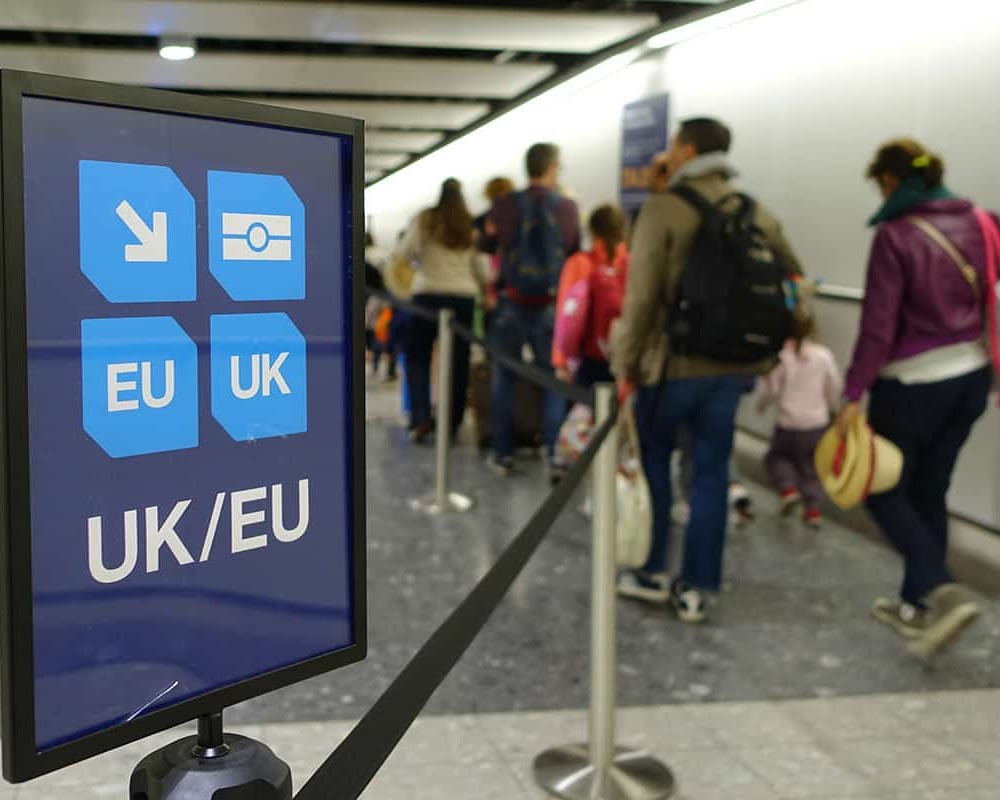
What is Asylum?
Asylum is the name of the application and process to get Refugee Status and protection in the UK from persecution.
Asylum is defined in the Refugee Convention as “…someone who is unable or unwilling to return to their country of origin, owing to a well-founded fear of being persecuted for reasons of race, religion, nationality, membership of a particular social group, or political opinion.”
To qualify for Refugee Status, you must also show that you cannot be protected by the state authorities in your country of origin or residence. Additionally, you must prove that you cannot live elsewhere in your country, even if you have never travelled or lived there before, to escape those that you fear.

What is Humanitarian Protection?
The Refugee Convention provides another form of protection called Humanitarian Protection.
This type of protection is granted where there is “serious and individual threat to a civilian’s life or person by reason of indiscriminate violence in situations of internal armed conflict.”
If, for example, you are fleeing war or widespread violence that is not specific to you or your identity, you could be granted Humanitarian Protection. You do not need to make a separate claim for Humanitarian Protection as this will automatically be considered as part of your asylum process.
What is the Process?
After you have claimed asylum or registered an asylum claim, you will go through the following process:
- Screening Interview.
- Asylum Substantive Interview.
- Asylum Decision.
Whilst these are the main steps in the asylum process, you may also receive questionnaires from the Home Office at certain points to gather more information from you.
You may receive a Preliminary Information Questionnaire, Asylum Claim Questionnaire or a Dependant Questionnaire.
What are the possible outcomes?
When the Home Office decides on your asylum claim, they will consider any and all information and evidence you have given during the asylum process.
Possible outcomes include:
- Grant of Refugee Status.
- Grant of Humanitarian Protection.
- Grant of Other Leave to Remain.
- Refusal.
If your asylum claim is refused, you may be able to appeal your decision. You will have a strict deadline, so it is important to seek advice and help immediately.
Why choose us?
The asylum process can be very long and stressful. Having a good and reputable asylum lawyer who will help you to understand the specific requirements and procedures involved will give you peace of mind.
Our highly trained asylum experts have a thorough understanding of the asylum process. We can help you with your asylum claim by providing you with:
- An honest opinion on the positives and negatives of your asylum case.
- Advice on claiming asylum, the requirements and the process.
- Interview guidance.
- Help with sending evidence and corrections.
- Requesting regular updates from the Home Office.
- Challenging an asylum refusal decision.
We will provide you with the most relevant and accurate advice by staying updated with the latest changes and industry trends.
Our unwavering commitment lies in delivering individualised care to you and your application.
Our team of asylum experts invest their time in understanding your circumstances and needs. This tailored approach empowers us to help you to put a strong asylum claim forward.

Citizenship
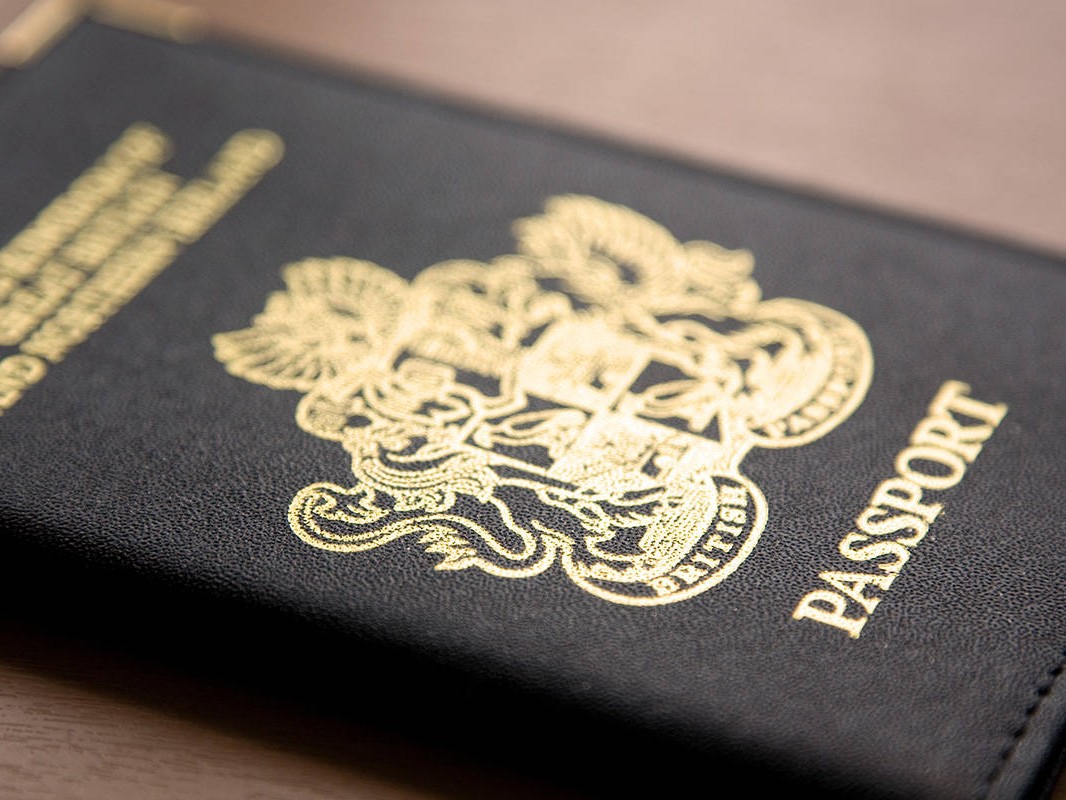
Personal Immigration
British Nationality - Naturalisation / Registration
Naturalisation/ Registration is the process through which you become a British citizen.
This typically involves living in the UK for a specified period and meeting certain legal requirements, such as proving good character and knowledge of English language and culture.
Pathways to British Nationality
Becoming a British citizen is a significant milestone that involves meeting specific criteria set by the Home Office.
Becoming a British citizen is a significant milestone that involves meeting specific criteria set by the Home Office. There are several routes through which individuals can get British citizenship, each designed for different circumstances and eligibility criteria. The process of becoming a British citizen is more commonly known as naturalisation or registration.
There are 6 different types of British nationality:
- British Citizenship.
- British Overseas Territories Citizen.
- British Overseas Citizen.
- British Subject.
- British National (Overseas).
- British Protected Person.
Below, we outline some of the different pathways to become a British citizen.

If you were born in the UK
If you were born in the UK, depending on your circumstances, you may not automatically get British citizenship.
It depends on when you were born and your parent’s circumstances and immigration status at the time of your birth. For example, if one or both of your parents had Indefinite Leave to Remain (ILR) or were British citizens when you were born, you will be automatically a British citizen.
If you were born in the UK but are not automatically a British citizen, you may be eligible to make an application to register as a British citizen if either:
- You were born on or after 01 January 1983; and
- You are under 18 and since your birth one of your parents became a British citizenship or got permission to stay in the UK permanently; or
- You lived in the UK until you were 10 or older.
You were born outside the UK
Ordinarily, British citizenship automatically passes down one generation to children born outside the UK.
If you were born outside the UK to a British parent, you will have automatically acquired British citizenship. If you have a child who is born outside the UK, they may not automatically be British. You will need to apply to register your child as a British citizen.

If you are married to or in a civil partnership with a British citizen
You can apply for British citizenship as the spouse or civil partner of a British citizen if you:
- Are over the age of 18.
- Are married to, or in a civil partnership with, someone who is a British citizen.
- Have lived in the UK for at least 3 years before the date of application.
As soon as you have been granted Indefinite Leave to Remain (ILR), Settled Status, or Indefinite Leave to Enter (ILE), you will be eligible to apply. You do not have to wait before you send your application.
In addition to the above, you must also:
- Prove your knowledge of English, Welsh or Scottish Gaelic.
- Pass the Life in the UK Test.
- Be of good character.
- Not have spent more than 270 days outside the UK during the 3 years before your application.
- Not have spent more than 90 days outside the UK in 12 months before your application.
If you have indefinite leave to remain (ILR), Settled Status under the EU Settlement Scheme or Indefinite Leave to Enter
You may be eligible to apply for British Citizenship if you have lived in the UK for 5 years and have had Indefinite Leave to Remain, Settled Status or Indefinite Leave to Enter for 12 months.
You must also:
- Be over the age of 18.
- Prove your knowledge of English, Welsh or Scottish Gaelic.
- Pass the Life in the UK Test.
- Intend to continue living in the UK.
- Be of good character.
- Prove you were in the UK exactly 5 years before the day you send your application.
- Not have spent more than 450 days outside the UK during the 5 years before your application.
- Not have spent more than 90 days outside the UK in 12 months before your application.
Other Routes to Becoming a British National
You could also be eligible for British nationality if:
If you have a British parent, depending on where and when you were born and your parent’s circumstances, you may be eligible to apply for British citizenship.
If you are a British Overseas Citizen, British Protected Person, a British Subject or a British National (Overseas), you may be able to apply for British citizenship.
You cannot, however, apply if you are a citizen or national of another country, or a British Overseas Territories citizen.
If you hold one of the 6 different forms of British nationality and you have lived in the UK for at least 5 years and you have worked as a Crown servant at any time, you may be able to apply for British citizenship.
If you were registered as a British Overseas Territories Citizen in Gibraltar before 21 May 2002, you probably became a British citizen.
You must have a connection with Gibraltar. Additionally, you can register as a British citizen if you were either naturalised in Gibraltar as a British Overseas Territories citizen after 21 May 2002 or registered in Gibraltar as a minor after 21 May 2002.
You may be eligible to apply for British citizenship if you were ordinarily resident in Hong Kong on the date of your application.
Additionally, you must have been a British national and ordinarily resident in Hong Kong on 03 February 1997 or your parents were ordinarily resident there at the time of your birth and you became a British national after 03 February 1997.
You may be eligible for British Overseas Territories citizenship and British citizenship if your parents are a British Overseas Territories Citizens, and you were not born in the UK. However, it depends on when you were born and your parent’s circumstances.
You may be able to apply to register as a British citizen if you are not recognised as a citizen of any other country. How you apply depends on when are where you were born.
In certain situations, it is possible to re-register your British citizenship or citizenship of the United Kingdom and Colonies after renouncing it.
You may be eligible to apply for British citizenship if in the past you should have automatically become a citizen or you should have been able to apply to become a citizen.
You will need to show that you missed out on being or becoming a citizen because the law was unfair in the past, a government department or local authority made a mistake or because of other exceptional circumstances.
You can apply to become a British Overseas Territories citizen and a British citizen if you have never previously been a British Overseas Territories citizen, British Dependent Territories Citizen, or British Citizen and you are the direct descendant of someone born in British Indian Ocean Territory.
You may be eligible to apply for citizenship under the Windrush Scheme if you or one of your parents arrived in the UK before 1973 and you have lived in the UK and not been absent for more than 2 years.
If your parents arrived in the UK before 1973, you must have either been born in the UK or arrived in the UK before you turned 18.
It is crucial to note that each route to British citizenship has specific eligibility requirements, including criteria related to age, residence, character, and language ability.
Additionally, you may need to meet the good character requirements and prove you have sufficient knowledge of life in the UK and the English language, depending on your chosen route.
Why choose us?
Becoming a British citizen is attainable through various paths each designed for different situations.
It is essential to understand the specific criteria for your chosen route and meet the necessary requirements. That is where we step in.
Our highly trained immigration lawyers have a thorough understanding of British nationality laws, requirements and processes and the various pathways to British citizenship. We can help you navigate the application process effectively by providing you with:
- Advice on your eligibility to apply for British citizenship based on your individual circumstances.
- A customised evidence checklist.
- Help with preparing and sending your application form and evidence.
- An honest opinion on the positives and negatives of your case.
Our nationality lawyers will simplify the citizenship process for you.

Visitor Visa
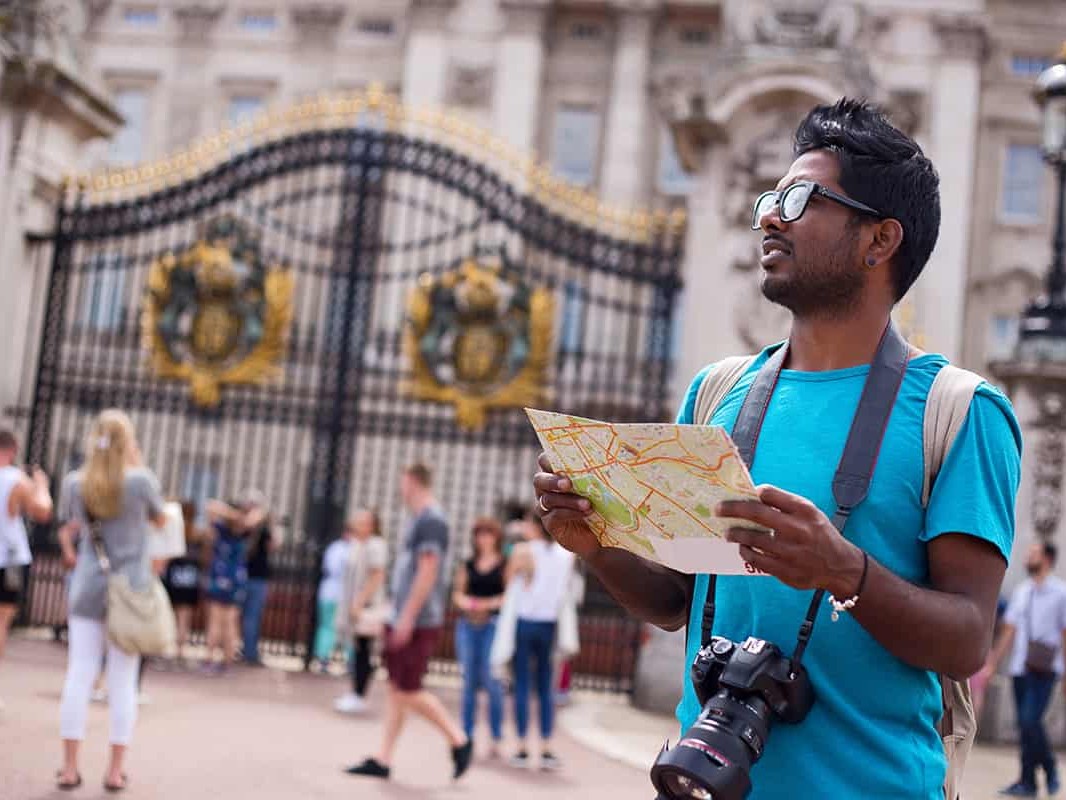
Personal Immigration
RYCM Team
A visit visa, often referred to as a visitor/tourist visa, allows you to enter the United Kingdom for a temporary period for various purposes.
You can apply for a visit visa for a term of 6 months, 2 years, 5 years or 10 years. However, you must not remain in the UK for more than 6 months during any one visit.
The Home Office supplies information on who needs a visa. Check to see if you require a visa to visit the United Kingdom:
The specific details of a visit visa, including its requirements and application process, can vary depending on the purpose of your visit.
What are the requirements for a standard visit visa?
To apply for a standard visit visa for the UK, you need to meet the following requirements which will be assessed by an Entry Clearance officer on behalf of the Home Office.
- Valid Passport - You will need a valid passport with at least one blank page for your visa and your passport must have more than 6 months before it expires.
- Travel Details – You must supply your travel dates to and from the UK and a travel itinerary that outlines your plans while in the UK, including the purpose of your visit and places you intend to visit.
- Intention to return – You must show you will leave the UK at the end of your visit. Often, having a return flight will not be enough.
- Proof of Financial Means - You must show that you have enough money to cover your living costs for the entire period you are in the UK. If you are being supported by a sponsor such as a family member or a friend, the sponsor must show they have sufficient funds to support your living cost for the duration of your visit.
- Accommodation – You must supply the address you will be staying at while you are in the UK. This can be done with a hotel reservation or a letter of invitation from your UK sponsor.
- Additional Documentation - You may need to meet other requirements depending on your specific circumstances and your reason for wanting to visit the UK.
What can I do whilst I am in the UK?
With a Visit Visa for the UK, you are allowed to engage in various activities during your stay such as:
- Visit Friends and Family
- Tourism: Visitors can come to the UK for a holiday. You can use your visitor visa to explore the country, enjoy tourist attractions, and have a vacation.
- Educational Exchanges: Visitor visa holders are allowed to take part in educational exchanges or visits, especially if they are related to state-funded educational institutions.
- Recreational Study: It is possible to undertake recreational study for up to 30 days on a visitor visa, as long as the course does not lead to a formal qualification.
- Medical Reasons: You can seek medical treatment or consultations in the UK.
- Business Activities: Explore a diverse range of business activities in the UK, including, job seeking, remote working, intra-corporate activities, participating in manufacturing and the supply of goods, overseas roles requiring specific activities in the UK, work-related training, graduate of medical, dental or nursing schools as well as professionals engaged in science research and academia. Additionally, athletes, coaches, sports professionals, Artist, performers, individuals involved in religious activities or missions, Legal professionals visiting the UK for specific legal activities can engage in activities in the UK.
What am I not allowed to do as a visitor?
You must not engage in the following activities in the UK as a visitor:
- Paid or unpaid work for a UK company or as a self-employed person.
- Claim benefits (public funds).
- Live in the UK for long periods by regular visits.
- Marry or register a civil partnership or give notice of marriage or civil partnership. There is a separate Marriage Visitor visa that will allow you to do this.
Visit visas do not lead to settlement in the UK nor does your residence in the UK as a visitor count towards permanent residence.
Why choose us?
Our highly trained immigration experts have a thorough understanding of the visit visa requirements and application process. We can help you with your tailored visitor visa application by providing you with:
- An honest opinion on the positives and negatives of your case.
- Advice on the visitor visa requirements specific to your circumstances.
- A customised evidence checklist.
- Help with preparing and sending your application form and evidence.
- Challenging a visitor visa refusal decision.
We are dedicated to providing you with the most relevant and accurate advice by staying updated with the latest changes and industry trends. Our unwavering commitment lies in delivering individualised care to you and your application.
Our team of immigration experts invest their time in understanding your circumstances and needs. This tailored approach empowers us to help you to create a robust visa application for submission to the Visa Application Centre.
With our proven track record of successful outcomes, you can have complete confidence in Compass Immigration Law Ltd.



